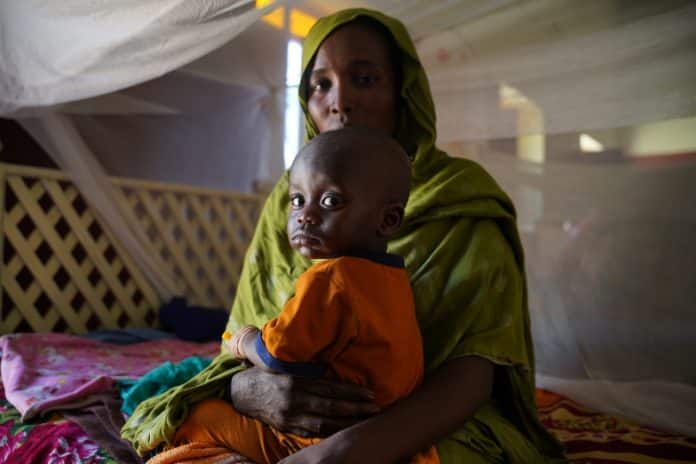The people of Sudan are facing a humanitarian catastrophe, United Nations Secretary-General António Guterres has warned, after fighting between rival military forces broke out in April 2023.
The dire conditions include food, water and fuel shortages, as well as limited access to transport, communications and electricity. Healthcare services have also been critically affected, ongoing insecurity has prevented people from leaving dangerous areas, and the cost of basic items has skyrocketed.
Sudanese people must be put first
Fighting erupted on 15 April between the Sudanese Armed Forces (SAF), led by Lieutenant General Abdel-Fattah Al-Burhan, and the Rapid Support Forces (RSF), led by Lieutenant General Mohamed Hamdan Dagalo, leaving hundreds dead and thousands injured.
“The fighting needs to stop — and to stop now — before more people die and this conflict explodes into an all-out war that could affect the region for years to come. All parties must put the interests of the Sudanese people first and that means peace, a return to civilian rule, allowing for the development of the country,” said Mr Guterres.
Call for funding to assist the displaced
With 860,000 people projected to flee to neighbouring countries, the UN refugee agency, UNHCR, and partners on 4 May appealed for $445 million to assist the displaced through October.
The Regional Response Plan for Sudan will support host countries to ensure access to asylum, life-saving humanitarian assistance, and specialised services for the most vulnerable.
Like Sudan, most of the receiving nations were already hosting large numbers of forcibly displaced people, and operations were already perennially underfunded.
Healthcare under fire
Some 61 per cent of health facilities in Khartoum are closed, and only 16 per cent are operating as normal.
Dozens of attacks on hospitals, healthcare staff and ambulances, alongside widespread looting of already scarce medical supplies, water, fuel, and electricity, are pushing the health sector to the brink of collapse, UN reproductive health agency, UNFPA, said.
The UN Children’s Fund (UNICEF) has voiced its ongoing concern for boys and girls affected by the crisis. Some 190 children have reportedly been killed and another 1,700 injured.
UN on the ground
The UN and partners continue to deliver humanitarian assistance to people in Sudan, wherever and whenever feasible. Emergency Relief Coordinator, Martin Griffiths, travelled to Sudan to help ensure the continued flow of humanitarian aid.
Following a temporary pause, the World Food Programme (WFP) has resumed its lifesaving operations and plans to reach 384,000 people over the coming days.
“Aid must be allowed into Sudan, and we need secure and immediate access to be able to distribute it to people who need it most. Civilians and civilian infrastructure must be protected. And humanitarian workers and their assets must be respected. I call on the international community to support the Sudanese people in their pursuit for peace and a return to democratic transition,” concluded Mr Guterres.
See also:

